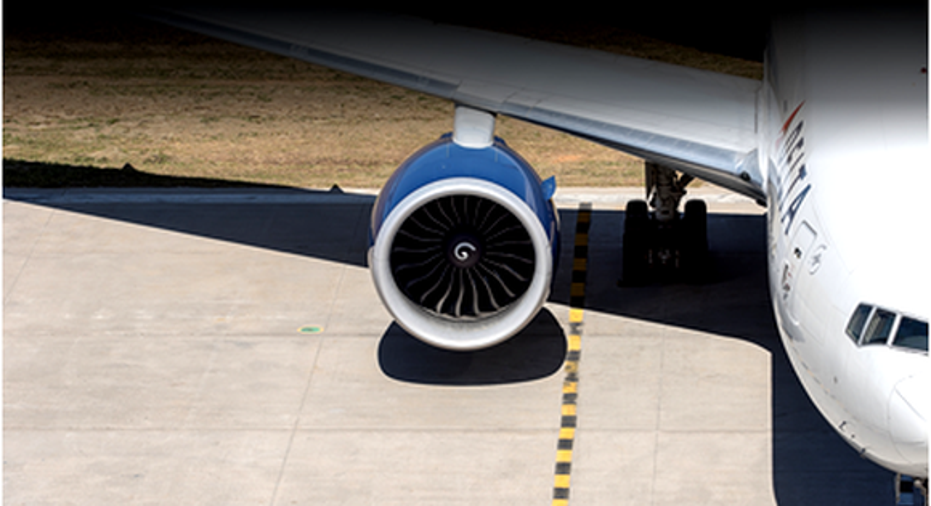Are Americas Airlines Under Cyber Attack?

Image source: Delta Air Lines.
For the second time in a week, a major U.S. airline grounded its fleet after its computer systems stopped working.The latest incident involved Delta Air Lines (NYSE: DAL), which canceled 170 flights on Sunday and another 110 on Monday because its "essential IT systems went down" over the weekend.
What's going on here?
The issue at Delta Air Lines alone doesn't seem suspicious -- computers fail all the time. Butthere are two things that could lead one to wonder if there's more to this than meets the eye.
The first is that Delta isn't just some guy like me sitting at home who doesn't know a thing about computers.It has 83,000 employees. It generates over $40 billion worth of revenue each year. The point is, Delta has plenty of resources to ensure that its systems don't just "stop working."
The second piece of the puzzle is that Delta's issues come one week after a similarly ambiguous glitch brought down the computer system at United Airlines, a subsidiary of United Continental Holdings (NYSE: UAL). Like Delta, United Airlines has tens of thousands of employees and earns tens of billions of dollars in annual revenue.
While it's impossible to say for sure if there's a connection between these two incidents, as neither company has explained why their computers crashed, there's reason to be suspicious that they weren't simply innocent failures of technology.
The cyber-threat landscape
In the course of researching cyber-threats to banks, I spoke last week withJohn Carlin, the former assistant attorney general for national security at the Department of Justice and one-time chief of staff at the FBI. There are few people who know as much about cyber-threats today as Carlin, as is clear if you watch his appearance on The Charlie Rose Show here.
Carlin pointed out both to me and to Rose that cyber attacks are waged against the American government and companies all the time. At the FBI, they even have a room with an enormous monitor mounted on the wall that tracks attacks in real time.
One of the stories Carlin shared was about the time that the People's Liberation Army of China was caught routinely hacking into American corporations' computers to steal trade secrets. "One time they stole the pricing information from a solar company so they could price-dump," the former law-enforcement officer explained. "To add insult to injury, when they were sued for doing so, they then stole the litigation strategy from [the solar company] as well."
The purpose of the attack wasn't to bring down the solar companies' systems, but those types of intrusions are just as common.Hackers regularly break into systems and then bring them to a halt until the victims make ransom payments. Or, in the case of a sustained cyber attack on four dozen U.S. banks from 2011 through 2013, which was traced back to the Iranian Revolutionary Guard, systems can be disrupted in retaliation for cyber attacks conducted by our own intelligence agencies, as news reports speculated at the time.
But what about Delta and United?
To get back to Delta Air Lines and United Airlines, then, it doesn't seem like an unreasonable stretch of the imagination to assume that the unexplained computer outages at the two companies weren't a coincidence at all, but instead the result of cyber attacks. Because airlines, like banks, are part of the United States' critical infrastructure, they're of particular interest to adversarial nations.
If this is the case, and it seems to fit what happened at Delta and United over the past two weeks, then it obviously adds another element of risk to buying and owning airline stocks that investors should keep in mind.
10 stocks we like better than United Continental Holdings When investing geniuses David and Tom Gardner have a stock tip, it can pay to listen. After all, the newsletter they have run for over a decade, Motley Fool Stock Advisor, has tripled the market.*
David and Tom just revealed what they believe are the 10 best stocks for investors to buy right now... and United Continental Holdings wasn't one of them! That's right -- they think these 10 stocks are even better buys.
Click here to learn about these picks!
*Stock Advisor returns as of January 4, 2017
John Maxfield has no position in any stocks mentioned. The Motley Fool has no position in any of the stocks mentioned. The Motley Fool has a disclosure policy.



















